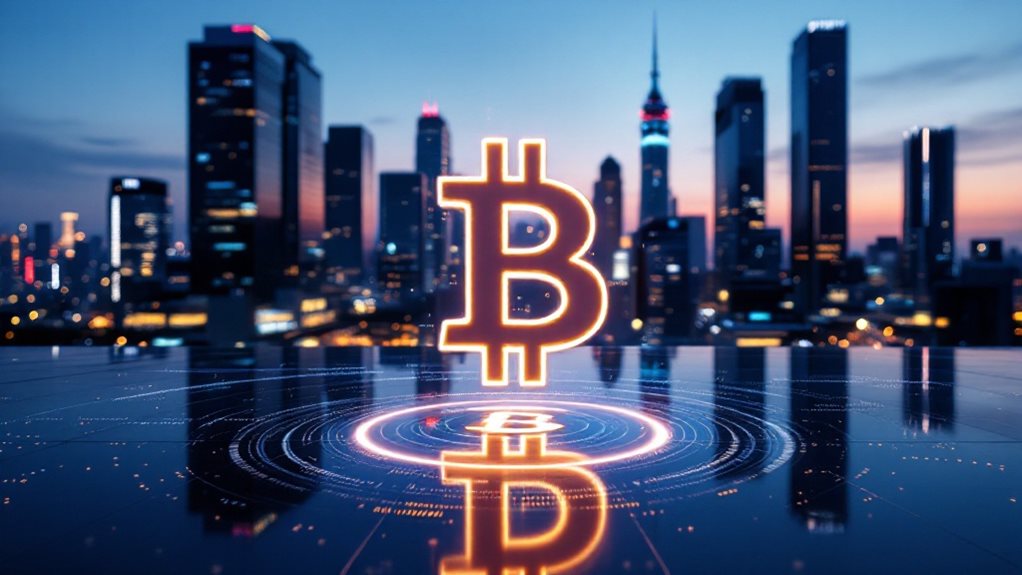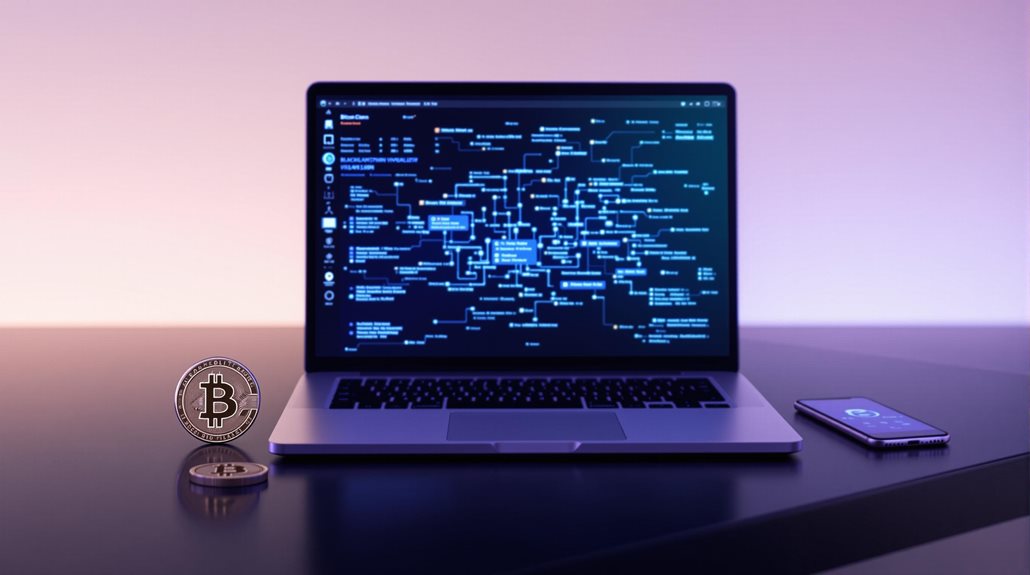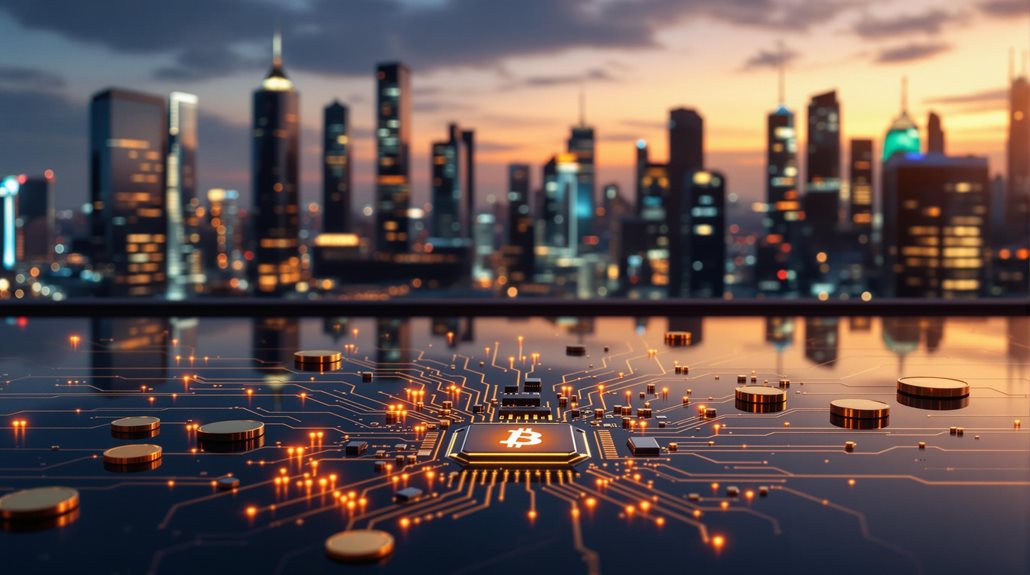Bitcoin is a digital form of money that exists only on computers and the internet. It's not controlled by any government or bank, letting people send money directly to each other without middlemen. Created in 2009 by someone using the name Satoshi Nakamoto, Bitcoin has a fixed supply of 21 million coins and runs on a technology called blockchain. Many major companies now accept it for purchases, marking its growing role in the digital economy.

Bitcoin is a groundbreaking digital currency that works without banks or government control. It was created in 2009 by a person or group using the name Satoshi Nakamoto. Unlike traditional money that's controlled by banks and governments, Bitcoin operates on a decentralized network of computers spread across the globe. This peer-to-peer system allows users to transfer value directly without intermediaries. Recently, Bitcoin reached a significant milestone when its price hit $100,000 on December 4, 2024.
The system works through a technology called blockchain, which is like a public digital ledger that records all Bitcoin transactions. When someone sends Bitcoin to another person, the transaction is verified by computers on the network called miners. These miners solve complex mathematical puzzles to confirm transactions and add them to the blockchain. As a reward for their work, miners receive new bitcoins. Many miners join mining pools to share computing resources and split rewards more consistently.
One of Bitcoin's most important features is that there will never be more than 21 million coins in existence. This limited supply makes it different from regular money, which governments can print more of whenever they want. Since 1971, the world has relied on government-backed currencies that are no longer tied to gold. Bitcoin can be divided into tiny pieces, with the smallest unit called a Satoshi, making it possible for people to buy just a fraction of one Bitcoin. The transparent ledger ensures every transaction is permanently recorded and viewable by anyone.
To use Bitcoin, people don't need permission from anyone. They just need a digital wallet and an internet connection. The system uses special codes called private and public keys to keep transactions secure. It's like having a super-secure email address (public key) and password (private key) for your money.
Bitcoin has several uses in today's world. Some people use it like digital gold, keeping it as a store of value. Others use it to buy things from businesses that accept it, like Microsoft and Expedia. It's also become a popular investment, though its price can change dramatically from day to day.
The network that runs Bitcoin never shuts down because it's spread across computers all over the world. There's no central point of control that could be turned off, making it very different from traditional banking systems. While some countries have restrictions on Bitcoin, it's legal to use, hold, and trade in many places around the world.
Bitcoin represents a new way of thinking about money in the digital age. It combines complex technology with basic economic principles to create a system that works without traditional financial institutions. As more people and businesses learn about and adopt Bitcoin, its role in the global economy continues to evolve.
Frequently Asked Questions
How Do I Protect My Bitcoin Wallet From Hackers?
Bitcoin wallets can be protected from hackers through several key security measures.
Hardware wallets keep private keys offline in a physical device, making them safe from online threats.
Two-factor authentication adds an extra security step using unique codes.
Strong passwords and avoiding public Wi-Fi networks help prevent unauthorized access.
Storing private keys offline and using encrypted backups keeps funds secure.
Regular software updates and antivirus protection provide additional safety.
Can Governments Ban or Regulate Bitcoin Transactions?
While governments can't completely ban Bitcoin due to its decentralized nature, they can regulate how people buy, sell, and use it.
Some countries like China have banned crypto exchanges, while others like the U.S. regulate Bitcoin through existing agencies.
Many nations require crypto businesses to follow rules about customer identification and reporting suspicious activities.
Even with regulations, it's hard to stop people from using Bitcoin directly between wallets.
What Happens to Lost Bitcoin When Someone Dies?
When someone dies owning Bitcoin, their coins can be inherited if they've shared their private keys with family or left clear instructions.
Without access to these keys, the Bitcoin becomes permanently lost and unusable. It can't be recovered, even by legal heirs.
The coins remain visible on the blockchain but can't be moved or spent. They're fundamentally frozen forever, reducing Bitcoin's total available supply.
Why Does Bitcoin's Price Fluctuate so Dramatically?
Bitcoin's price swings dramatically because it's driven by pure supply and demand without any central control.
When lots of people want to buy Bitcoin, the price goes up fast. When they want to sell, it drops quickly.
News about regulations, big company investments, or market events can cause people to rush in or out of Bitcoin all at once.
Its fixed supply of 21 million coins also makes price changes more extreme.
How Many Merchants Worldwide Currently Accept Bitcoin as Payment?
According to recent data, around 15,174 businesses worldwide accept Bitcoin as payment.
About 2,300 of these are in the United States, where California leads with 440 Bitcoin-accepting businesses.
Major companies like Microsoft, PayPal, AT&T, and Wikipedia take Bitcoin payments.
The adoption is highest in industries like gambling, tourism, banking, food, and retail.
El Salvador stands out as the only country that's made Bitcoin legal tender.





